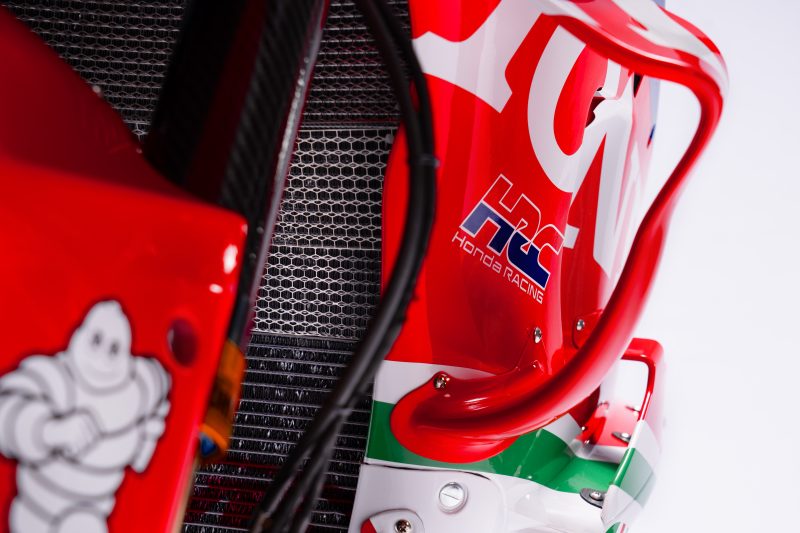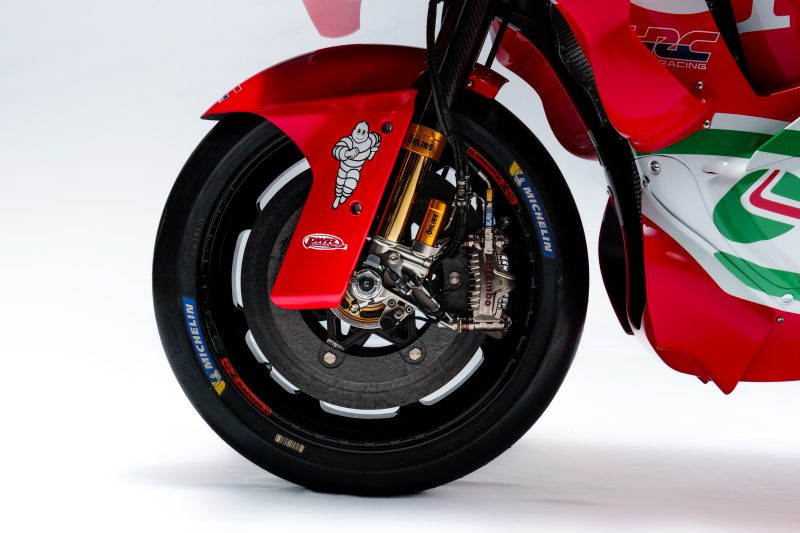RC213V
Technical Specification
| Overall length (mm) | 2052 |
| Overall width (mm) | 645 |
| Overall height (mm) | 1,110 |
| Wheelbase (mm) | 1,435 |
| Road clearance | 115 |
| Weight (kg) | As per FIM regulations |
| Engine type | liquid-cooled, four-stroke, DOHC 4 valve, V-4 |
| Displacement | 1000 |
| Maximum power | Over 180 KW |
| Frame type | Aluminum twin-tube |
| Wheels Front (inch) | 17 |
| Wheels Rear (inch) | 17 |
| Suspension Front | Telescopic fork |
| Suspension Rear | Pro-link |
| Braking System | Monobloc finned aluminium GP4 Brembo Calipers |
| Fuel tank capacity (litres) | 22 |
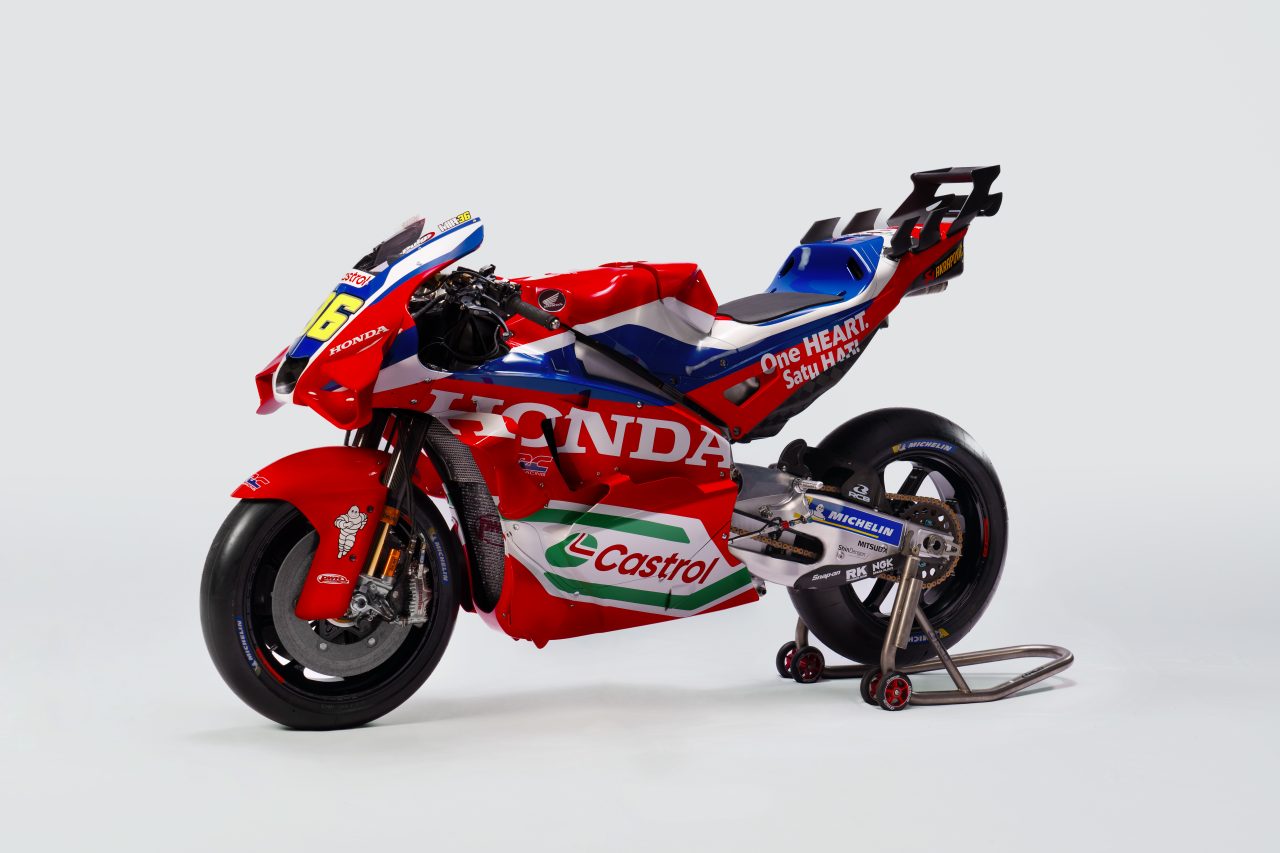
Chassis
As always, 2025 will introduce a number of upgrades and revisions to the chassis of the Honda RC213V as engineers work to find the best balance between turning, stability, flex and the demands of the riders. The twin-spar aluminium chassis is designed to be light yet strong, aiming to take advantage of the impressive power from the Honda RC213V’s always-improving engine and the grip offered by Michelin’s tyres. All factors must be carefully studied and combined to allow the riders to extract the full potential of the bike and themselves.
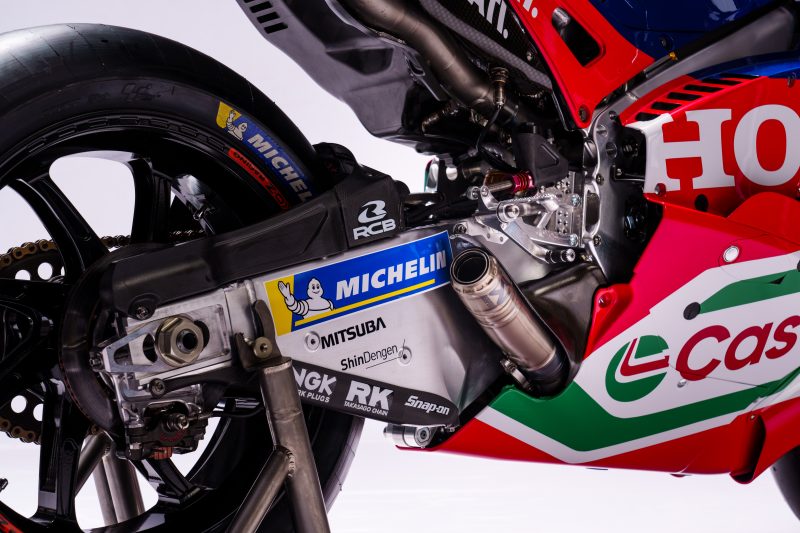
Engine
With a capacity of 1000cc and achieving top speeds of over 360 km/h, the V4 four-stroke engine of the 2025 Honda RC213V is a formidable piece of engineering. Exploiting the maximum power possible, it must be durable enough to survive the demands of a full MotoGP season. Offering riders even more power and rideability is always the goal of engine development. Upgrades will continue throughout 2025 as Honda HRC continue with concessions.
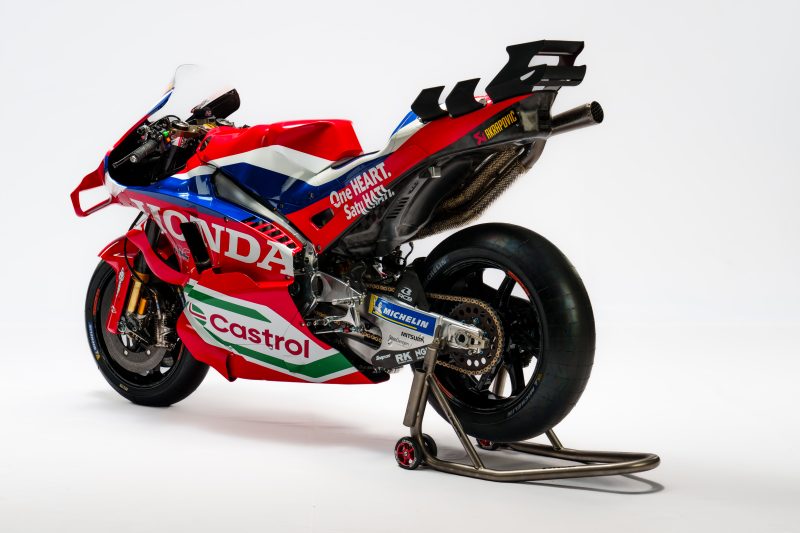 Suspension
Suspension
Öhlins front and rear suspension continues to adorn the Honda RC213V for the 2025 MotoGP season. Suspension is a pivotal connection between the tyres, chassis and rider, maintaining the maximum amount of grip to the circuit and allowing the rider to understand what is happening with both the front and rear of the motorcycle. Öhlins provide the factory Honda HRC team with dedicated technicians, experts in their field, to ensure the proper operation of both front and rear suspension. Working closely together, Öhlins and Honda HRC continually work to development improvements in order to improve performance even further.
Bodywork
Bodywork continues to play a key role in MotoGP as aerodynamics have become a central focus on development time and effort. Aerodynamics are used in a number of ways such as helping to reduce wheelie, improve stability at high speeds and in corners. Developments are constant as knowledge is expanded and needs change.
Tyres
MotoGP tyres are supplied exclusively by Michelin. Each round presents a new challenge for the tyre supplier due to the track layouts and surface of the circuit.
Brakes
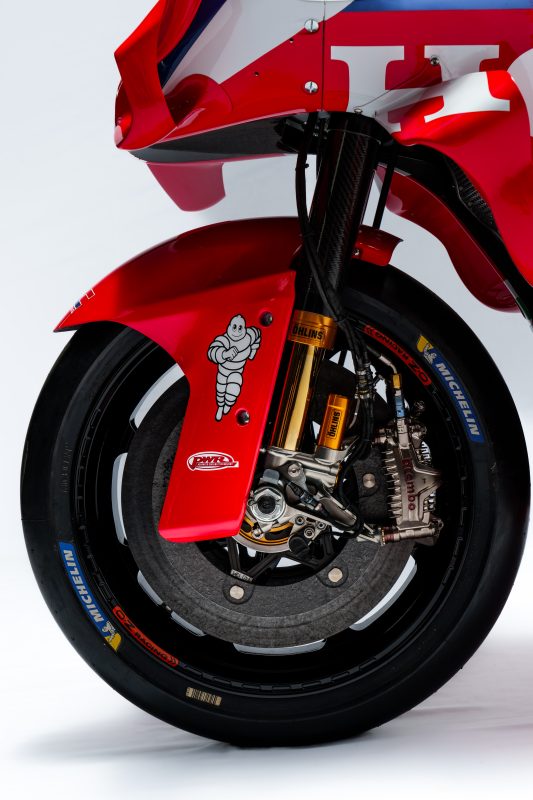 Carbon fiber front brakes are provided by Brembo. Monobloc finned aluminum GP4 Brembo calipers are machined from solid with a radial attachment of four titanium pistons. These are mounted on Double Brembo carbon brake discs on the front of the motorcycle. A Brembo aluminum rear caliper with steel brake disc is used on the back wheel. In both wet and dry conditions, external covers and cooling ducts are sometimes added to help regulate the temperature of the brakes as the demands of MotoGP machines continue to grow.
Carbon fiber front brakes are provided by Brembo. Monobloc finned aluminum GP4 Brembo calipers are machined from solid with a radial attachment of four titanium pistons. These are mounted on Double Brembo carbon brake discs on the front of the motorcycle. A Brembo aluminum rear caliper with steel brake disc is used on the back wheel. In both wet and dry conditions, external covers and cooling ducts are sometimes added to help regulate the temperature of the brakes as the demands of MotoGP machines continue to grow.
